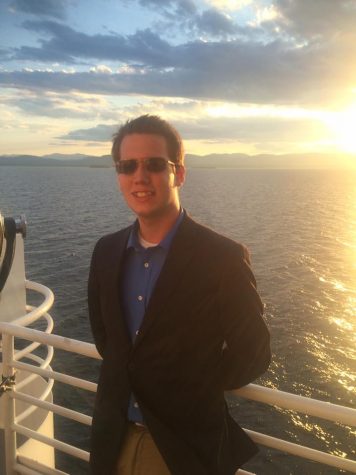City Council candidates show no ‘clear difference yet’ in platforms
February 17, 2015
With election day fast approaching, candidates said they have been busy registering as many voters as possible.
For the Ward 8 seat, UVM alumnus Adam Roof is running against student Brock Gibian, who is taking a semester off from school. For the East District seat, Ward 1 City Council member Selene Colburn is running against UVM senior Carmen Scoles.
There has not been a clear difference between any of the candidates platforms yet, but that the upcoming Ward 8 and East District debate Feb 18 may solve this, said Joe Speidel, Director of Local Government and Community Relations for the University
“I’m hoping that with the debates that will be a way for the candidates to clearly articulate what they stand for and have students identify with those issues and get motivated and register to vote,” Speidel said.
Ward 8 is an interesting situation because of its small size and its blend of a large student majority and a small permanent resident population, Roof said.
“You will have to represent both equally, and that poses as a challenge as well,” Roof said.
Gibian’s campaign is fighting “tooth and nail” until the end. He is doing everything from knocking on doors, answering calls and listening to voicemails to stepping out from work at Renewable Energy Vermont to answer calls about his campaign, he said.
Renewable Energy Vermont is a “non-partisan trade association” according to their website, and Gibian is a registered lobbyist for the organization, according to the state’s lobbyist database.
“We are really at kind of a climax moment,” Gibian said.
Roof has been facing challenges as well to “control the chaos” of politics, but thinks it’s necessary not to lose track of running a “respectful” campaign, he said.
He wants to “run a campaign that focuses on real issues, because this is a serious business that deals with real people and their kids and their futures,” he said.
“I’m excited about the race. I’ve only been here for two years but I feel like part of the community and I think it is going to be a heated race,” said Buell Street resident, Sage Han.
With the recent city redistricting, Colburn said she sees this election as unique.
“We have a real opportunity [in the city] to be rethinking our role as a district in policymaking and what kinds of policy we need for effective representation,” Colburn said.
As a self-proclaimed “newcomer,” Brooklyn, New York-native Scoles sees Burlington as the best place to run in an election, she said.
“You want to make sure [students] know they have a voice, can be active in their community and are important and empowered. So, [leadership] is a little bit of finding that nice balance between the two and representing them the best you can,” Scoles said.
Students have always been able to run for City Council; however, only now do students make up a majority of the population in a ward, said Gail Shampnois, director of Student and Community Relations for UVM.
“If you look at the map of where UVM students live, I think students feel more like they’ll have a voice,” Shampnois said.
However for students, Speidel said, the important question in the election is “What do people care enough about?” This question may have been the reason why students have not run for City Council elections in the past, he said.
“What can you talk about as a candidate that’s going to get your fellow students interested enough to register and to vote, whether they’re here on campus or doing it absentee?” he said.
The debate might be the forum in which voters start to see them differentiate themselves, and will be an opportunity to be “in front of a crowd, see their different styles,” said Wendy Koenig, Federal Relations director for UVM.







